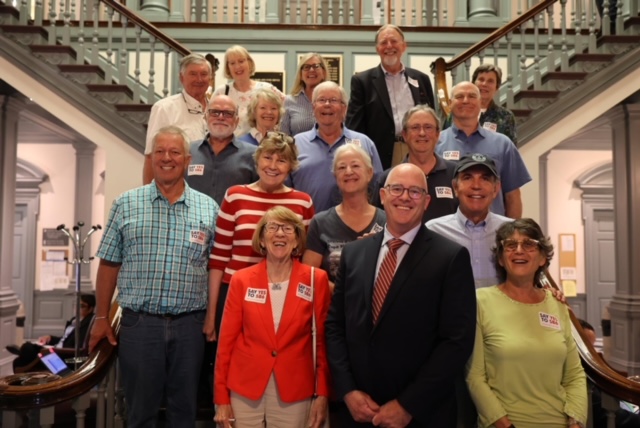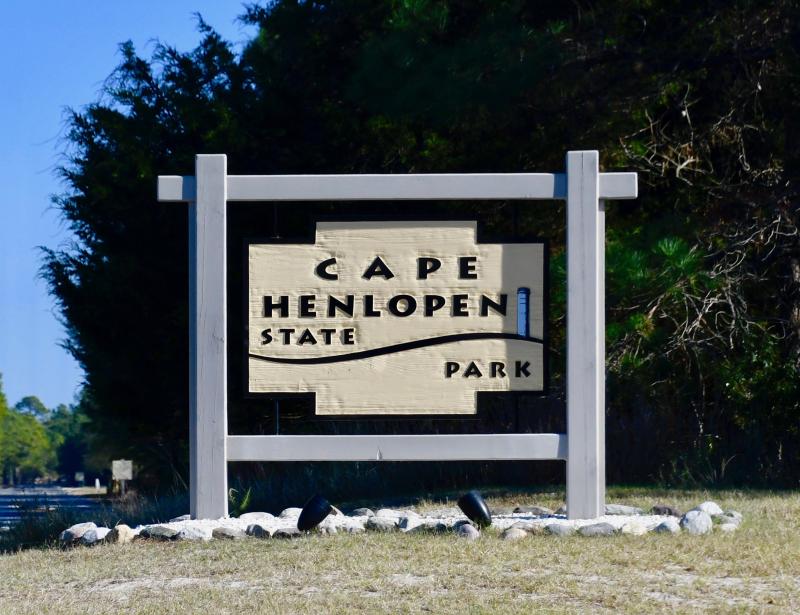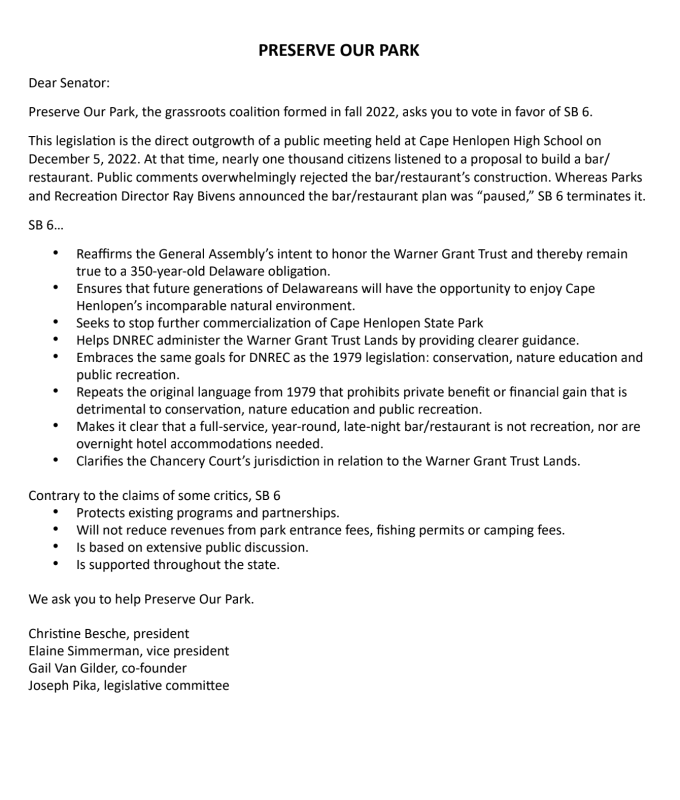An amended bill meant to update usage of Cape Henlopen State Park unanimously passed through the Senate June 6. The latest version protects existing uses such as drive-on surf fishing, kayak rentals, concession stand sales and other activities deemed in the public interest.
“This bill should not be interpreted as an impediment for rehabilitating or enhancing existing facilities, for they are deemed a benefit and, in some cases, historic,” said Sen. Russ Huxtable, D-Lewes, the bill’s primary sponsor.
Huxtable introduced the bill May 10 after months of outcry by Cape Region residents opposed to a public/private partnership that would have allowed a restaurant to be built near the Hawk Watch and David McBride Bathhouse at Cape Henlopen State Park.
The Department of Natural Resources and Environmental Control pulled the plan during a packed public hearing in December 2022 at Cape Henlopen High School.
DNREC Secretary Shawn Garvin expressed concern over heavy-handed language in Huxtable’s original bill during a May 17 committee hearing. Among his concerns were that it would have required the Attorney General’s Office to represent any Sussex County resident who had an issue with the park’s public use, and would have also required public use of the park to fall under the governing principles of conservation, nature education and public education. The bill’s amendment removed both requirements.
Huxtable also said all existing activities at Cape Henlopen State Park are grandfathered under the bill, including drive-on surf fishing.
“We added fishing as part of public recreation just to assure those folks who, like myself, have a beach tag and would still be able to continue that same use,” Huxtable said.
Still, Ray Bivens, Delaware State Parks director, who had backed the restaurant plan, said he believes the bill is too restrictive, and he asked for a shorter, one-page version.
“If this bill was in place when I started as director, there would be no Gordons Pond Trail,” he said. “Parks can sometimes be a tough business because what’s best for the people and access and accessibility is not always best for the resource. We did build that [trail] through wetlands, but we did it with the best practices at hand. A small group of people … would like to see no pavement in the main beach parking lot; they would like it to return to gravel. [That means] no snack bar whatsoever; it’s less people coming to the park.”
The bill now heads to a House committee for action.

Melissa Steele is a staff writer covering the state Legislature, government and police. Her newspaper career spans more than 30 years and includes working for the Delaware State News, Burlington County Times, The News Journal, Dover Post and Milford Beacon before coming to the Cape Gazette in 2012. Her work has received numerous awards, most notably a Pulitzer Prize-adjudicated investigative piece, and a runner-up for the MDDC James S. Keat Freedom of Information Award.























































